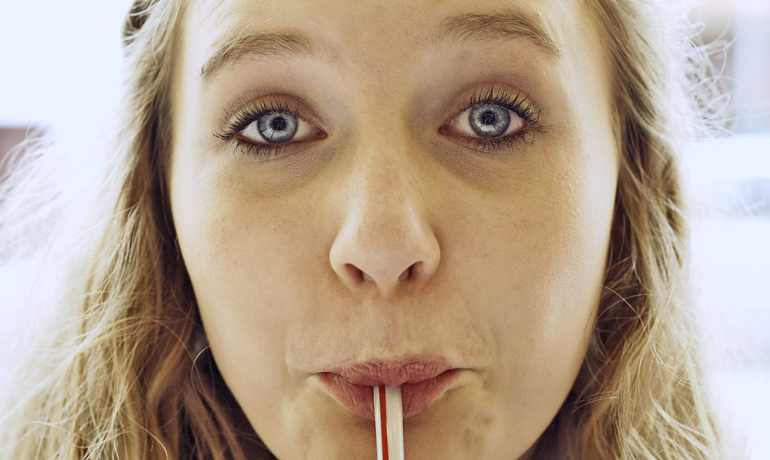
"Consuming a diet high in added sugars not only can lead to weight gain and metabolic disturbances, but can also negatively impact our neural functioning and cognitive ability," says Scott Kanoski. (Credit: Drew Herron/Flickr)
Posted by Robert Perkins-USC on October 7, 2014
Teenagers who drink large amounts of sugar-sweetened beverages may be at higher risk for memory problems.
Researchers found adolescent rats that freely consumed large quantities of liquid solutions containing sugar or high-fructose corn syrup (HFCS) in concentrations comparable to popular sugar-sweetened beverages experienced memory problems and brain inflammation, and became pre-diabetic.
The same effects were not see in adult rats fed the sugary drinks and in adolescent rats who did not consume sugar.
“The brain is especially vulnerable to dietary influences during critical periods of development, like adolescence,” says Scott Kanoski, corresponding assistant professor at University of Southern California.
MAZE TESTS
Published in the journal Hippocampus, the study tested 76 rats. About 35 to 40 percent of the rats’ caloric intake was from sugar or HFCS. For comparison, added sugars make up about 17 percent of the total caloric intake of teens in the United States on average, according to the Centers for Disease Control and Prevention.
The rats were then tested in mazes that probe their spatial memory ability. Adolescent rats that had consumed the sugary beverages, particularly HFCS, performed worse on the test than any other group—which may be the result of the neuroinflammation detected in the hippocampus, Kanoski says.
The hippocampus is a part of the temporal lobe located deep within the brain that controls memory formation. People with Alzheimer’s disease and other dementias often suffer damage to the hippocampus.
“Consuming a diet high in added sugars not only can lead to weight gain and metabolic disturbances, but can also negatively impact our neural functioning and cognitive ability,” says Kanoski, who plans to investigate how different monosaccharides (simple sugars) and HFCS affect the brain.
Link:
Nenhum comentário:
Postar um comentário